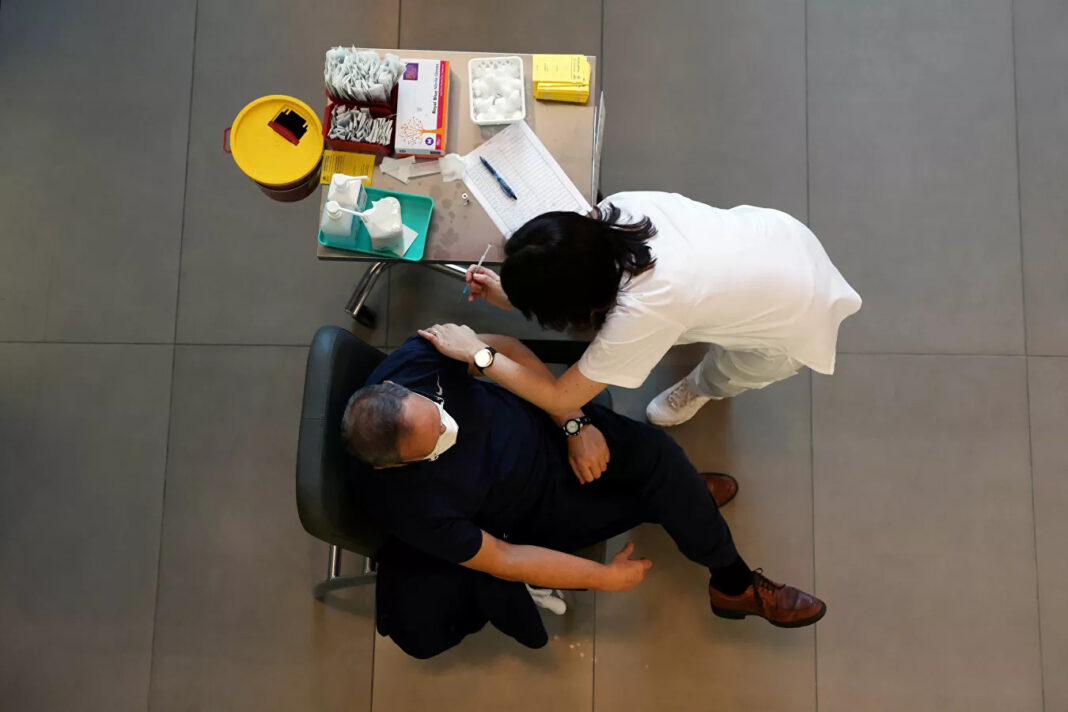Until recently, Israel has been a model for the way it has handled the coronavirus pandemic. The number of daily cases has been rapidly dropping, while the number of vaccinated individuals has been on the rise.
Then, at the end of November, the Omicron variant showed up and turned the situation upside down.
Today, Israel is leading in daily COVID-19 cases per capita. On Friday, more than 53,000 people were registered as sick with the virus, but experts believe the real numbers are much higher.
“Although the Omicron variant is less severe, it is very contagious and thus we see more people being admitted to hospitals”, said Professor Arnon Afek, the co-chairman of the Israel Association of Hospital Directors and former director-general of the Health Ministry.
“What we also see is that it impacts children, and we have some worrisome information coming from abroad that it affects teens as well”, he added.
Coupled with such “usual” winter diseases such as influenza and other respiratory viruses, the coronavirus has put tremendous pressure on Israeli hospitals, primarily because the thousands of medical personnel that are supposed to be treating patients are either in isolation or are sick with COVID-19 or other diseases themselves.
“As a result, the existing medical staff needs to juggle between COVID-19 and non-COVID patients. Instead of giving attention to eight patients, a nurse is now splitting her focus between 13 people. Of course, it is not the quality of service we used to give in the past when the situation was normal. But we are doing the best we can,” reassured Afek.
Yet, splitting that attention is not an easy task, because COVID-19 patients require special care. For the sake of comparison, a regular intensive care unit (ICU) normally operates 8 doctors and 16 nurses.
For COVID, the numbers are higher, some 20 and 95 medical professionals respectively.
Israel currently has more than 2,400 coronavirus patients in hospital, 1,010 of them in critical condition. To treat those, as well as many other patients seeking medical attention, they will need equipment but the problem is that – just as with personnel – it is stretched way too thin, and is located mainly in the centre, while the periphery is struggling.
Although the country has 80 ECMO machines that help in treating patients in critical condition, experts are worried that this number will not be sufficient if the situation continues to deteriorate. And now they are also worried that the number of beds will be insufficient as well.
According to official data, at the end of 2020, Israel had 16,331 beds dispersed across its 45 hospitals. Although over the years the number of beds has been increasing, it has hardly managed to cater to the needs of the constantly growing Israeli population, leaving the country way behind other developed OECD countries.
The situation with ICU beds is also alarming. Israel now has some 400 intensive care units, which means four per 100,000 people, compared to other developed OECD countries, whose average stands at 11.5 for the same amount of patients.
Some of those beds are not even in use, simply because Israel now lacks the necessary medical staff to operate that equipment.
Experts have long warned that the country needed to boost its equipment to be able to cope with the coronavirus challenge. Israel and its Health Ministry definitely have the funds to do so.
The Health Ministry’s overall budget for 2021 stood at roughly $13.7 billion. For 2022, that number has jumped to $14 billion. $256 million of the 2022 budget is supposed to be allocated to boost Israeli hospitals and their public health organisations. Another $100 million is expected to be poured into creating more medical jobs and positions.
But so far only a small fraction has been delivered. It was reported that Prime Minister Naftali Bennett and Health Minister Nitzan Horowitz have decided to allocate an additional 45 ICU beds to hospitals, instead of the 342 requested by the Israel Association of Hospital Directors.
Hospitals’ pleas to get more medical staff haven’t been answered yet.
“We expect the state to give us more positions, more nurses, more ICU beds, and other equipment. And I don’t know why it hasn’t been done already,” stated Afek.
“[In 2018] Bloomberg ranked Israel’s healthcare efficiency as 6th in the world. We are very good at what we do but we need resources to do that, and we expect the state to provide us with them”, he summed up.
